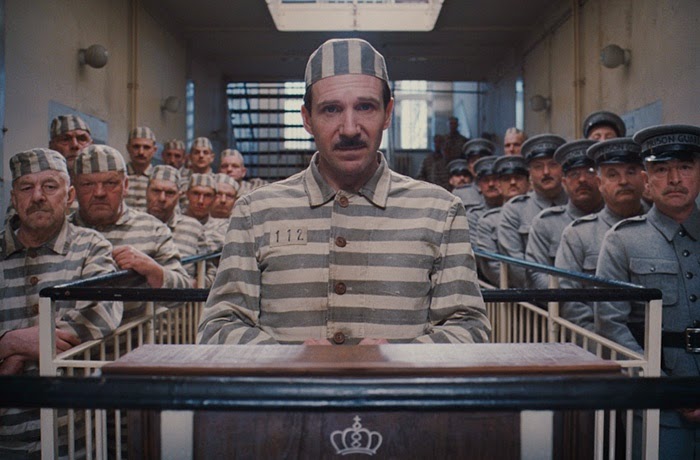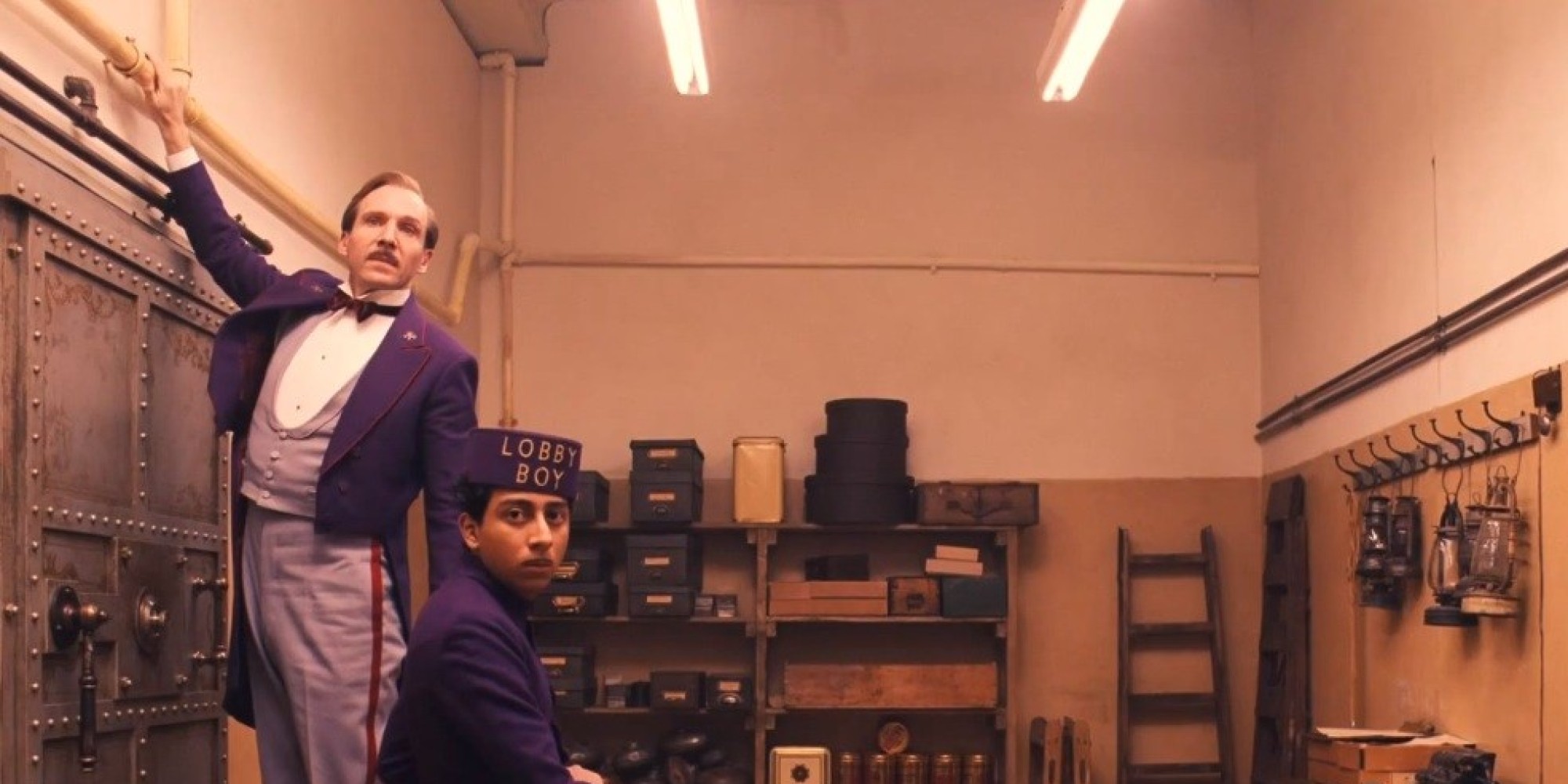Team FYC: The Grand Budapest Hotel for Sound Editing and Mixing
 Thursday, December 11, 2014 at 10:00PM
Thursday, December 11, 2014 at 10:00PM Editor's Note: We're featuring individually chosen FYC's for various longshots in the Oscar race. Here's Teo on the sound work in Golden Globe nominee, The Grand Budapest Hotel.

By now, Wes Anderson's house style has become so familiar that it can be easy to take it (and him) for granted. But for fans, the surface similarity of his films is just an invitation to look for the differences. And in every way, a closer look at The Grand Budapest Hotel pays off.
I had the opportunity to sound edit a film over the summer. It was a documentary, but in a process like sound editing, the difference between documentary and fiction film is generally negligible. You fix what the on-set mics couldn't capture. You try to find or create sounds that can approximate what you lost. What's unique about Anderson's sound editing is that he doesn't try to make his films sound like reality any more than he tries to make his films look like reality. Instead, Wes Anderson's films are filled with sounds that are almost hyper-real. They're crisply recorded and minimal in their design...
To take the example of the prison escape, Anderson has our prisoners first silently swing over, then scuttle under and then finally hop on the bars of the guards beds. It's whimsically funny to watch because the sounds that have been chosen don't match the actions. Surely a bunch of burly prisoners would make more noise than this? It seems like a small thing, but think of the effect it would have on the film if we watched sequences like this with more lifelike sounds. The unreality of Wes Anderson's soundscapes are a vital part of keeping the films afloat.
But if this creative choice is one that is consistent throughout Wes Anderson's career, The Grand Budapest Hotelrepresents a significant creative departure in other arenas. Anderson has created a visual challenge for himself in this film by imposing the 1.85:1 aspect ratio for most of the runtime. He is a famously horizontal filmmaker, and he compensates for the smaller frame by creating unfathomably deep spaces for his characters to run around in. The hotel, the prison, the country manors—all caverns for Anderson to play around in. But he doesn't stop at visuals when it comes to exploring this new plane. The new depth of his film world is reflected in the sound mix too. And that's where things get brilliant because he has managed to make a film that buries the entirety of its conflict in its sound.

Desplat's score is what registers first. It's omnipresent through the film —bright and fleet, with plucking balalaikas and lutes. But if this film was a concerto—and really, it is—the score is only the most legible melody. The rest of the film's design, the sounds of the hotel itself, the dialogue, act as their own music. It's not just the rhythmic timing—doors slamming at precisely the right moment in the score, coins and bells mixing with Desplat's drums—but thanks to those cavernous spaces Anderson's created, the tone and the tambour of the sound mix becomes a vital part of the film's emotional appeal.
When you register depth with your eyes, it is only deep. But the sound of depth is another thing entirely. Depth has echoes. It's hollow. The music tells us to be happy, but the reverberating dialogue, the echoes of footsteps on the carpet, all the sounds that are tied to the physical reality of the world that M. Gustave and Zero romp about in give the movie a gnawing emptiness. Meanwhile, the studio-recorded voiceovers are warm, read softly and close to the mic, like a bedtime story. Wes Anderson neither shows or tells us what this story is about, but instead he lets the sound shift us between emotional registers, creating a cinematic experience in the languages we all speak: music and feelings.



Reader Comments (3)
I love those FYC articles. Thanks !
Charlie -- me too. i think this one is particularly excellent. I find writing about sound or even really analyzing it in the movies difficult so i love this education that's also enjoyable.
Agreed! I know so little about this area of film, and this was a great/informative read!